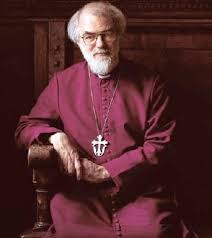 The spiralling violence in Gaza tragically illustrates the fact that the cycle of mutual threat and retaliation have no lasting effect except to reinforce the misery and insecurity of everyone in the region. I want to express my grief and sympathy for the innocent lives lost in this latest phase of violence. People of all faiths in this country will want to join their voices to the statements of the Christian Muslim Forum and the Council of Christians and Jews in urging a return to the ceasefire and efforts to secure a lasting peace. We must unite in urging all those who have the power to halt this spiral of violence to do so.
The spiralling violence in Gaza tragically illustrates the fact that the cycle of mutual threat and retaliation have no lasting effect except to reinforce the misery and insecurity of everyone in the region. I want to express my grief and sympathy for the innocent lives lost in this latest phase of violence. People of all faiths in this country will want to join their voices to the statements of the Christian Muslim Forum and the Council of Christians and Jews in urging a return to the ceasefire and efforts to secure a lasting peace. We must unite in urging all those who have the power to halt this spiral of violence to do so.Those raising the stakes through the continuation of indiscriminate violence seem to have forgotten nothing and learned nothing. It must surely be clear that, whilst peace will not wipe out the memory of all past wrongs, it is the only basis for the future flourishing of both the Israeli and Palestinian peoples. The recent statement by the Patriarchs and Heads of Church in Jerusalem reflects a clear awareness that there can be no winners if the current situation is allowed to persist. Its continuation can only condemn ordinary Palestinian and Israeli citizens to the prospect of another year of fear and suffering.
Urgent humanitarian needs have arisen through the attacks on Gaza and Israel and they demand a generous response to local appeals for support, such as that issued by the Anglican Diocese of Jerusalem for its hospital in Gaza. But this humanitarian response, both local and international, needs to be matched by redoubled efforts in the political sphere.
The prophet Zechariah declared, "Not by might and not by power, but by my spirit says the Lord of Hosts". The New Year is an opportunity for a new initiative that will set the tone for what lies ahead. Religious leaders, most particularly those of the region, have an urgent responsibility in supporting the search for peace and reconciliation. But it is the political leaders and opinion-formers who hold the key to implementing the necessary changes that can bring hope. Can they not agree a period of truce as the New Year begins, so that the communities of the Holy Land may once again explore how common security might at last begin to replace the mechanical rhythms of mutual threat? Might the outgoing and incoming Presidents of the USA combine to make such an appeal and pursue its implementation?
The Anglican Communion worldwide stands alongside other religious communities and humanitarian organisations in its commitment to supporting any such initiative. Without such a sign of hope, the future for the Holy Land and the whole region is one of more fear, innocent suffering and destruction.



No comments:
Post a Comment